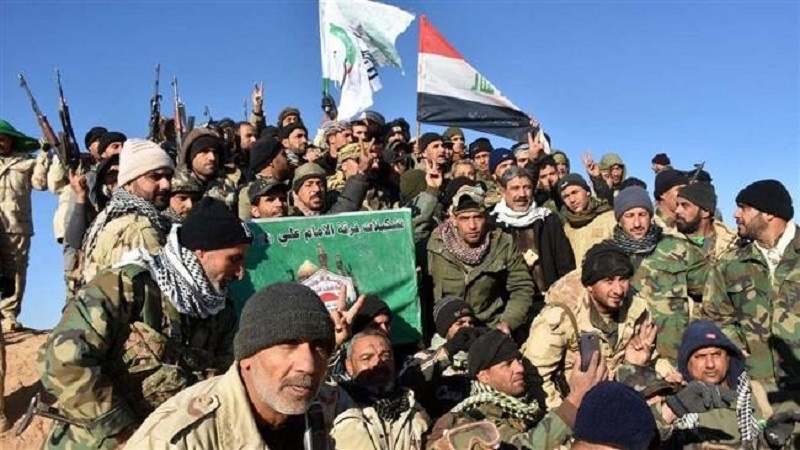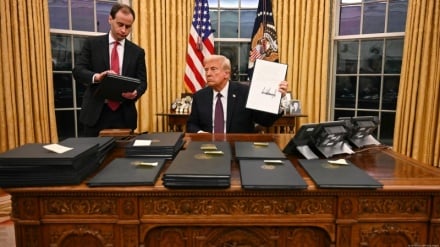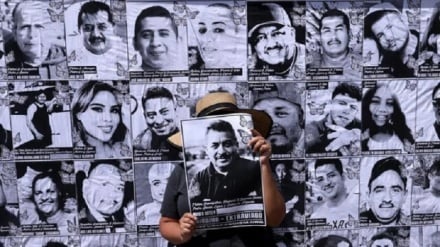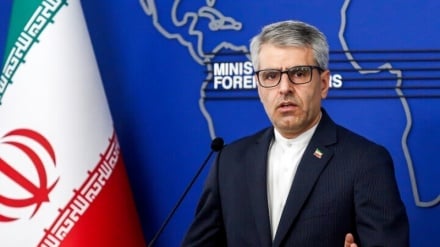By law or force: Iraq's popular forces vow to oust US occupation troops
Ousting US troops from Iraq despite Donald Trump's vow to stay is now the top goal of Hashd ash-Sha’abi or Popular Mobilisation Units (PMU); and their leaders say there are only two ways -- by passing a new law, or by force.
These were the remarks of Ali Shoukeir for the Digital Journal in a report that follows.
US-Iraq relations have grown tense once again, after a series of ups and downs over the years, from the 1991 Persian Gulf War though crippling sanctions to the 2003 invasion that toppled Washington’s former ally Saddam and the fight against the Daesh terrorists.
But a year after Iraq declared victory over Daesh following a three-year war against the terrorists in which it was also backed by Iran, the Americans are seen by many in Iraq as an unwanted “occupying force”.
Mohammad Mohie, spokesman for the Hezbollah Brigades in Iraq warned: “And if they do stay, every Iraqi will have the legitimate right to confront them by any means.”
The powerful leader of the Asa’ib Ahl al-Haq (League of the Righteous), Qais al-Khaz’ali, echoed the warning: “If we are ever needed, we are ready.”
The Americans are obvious very worried. There were nearly 4,500 US occupation troops killed in Iraq between 2003 and 2011, including in fighting against the popular forces.
But before any decision to take up arms again and spill more blood, Mohie said he wants to give Iraqi lawmakers a chance to set a timeframe for the departure of US troops from Iraq.
A bill has been tabled in parliament, and there could be a rare show of unanimity in support of it between its two biggest factions: Moqtada Sadr's alliance, and the bloc headed by Hadi al-Ameri of the PMU anti-Daesh fighters.
Renad Mansour, a researcher at the London-based Chatham House think-tank, says: “For three years, the main rivalry in the Iraqi parliament has been among factions of the majority community; they cannot agree on the choice of a minister, but they do on one point: that the experience of having America in Iraq has been bad.”
Ironically, the person who has given new impetus to the proposed timetable for American troops to leave Iraq is the US president himself.
Last month Trump provoked indignation even among Washington's allies in Baghdad when he said he plans to keep American forces in Iraq to keep an eye on Iran.
As a result, said Mansour, US diplomats and military officials in Baghdad were “very worried” and doing everything to minimise the impact of the remarks,.
Trump had already irritated the Iraqis by entering Iraq uninvited, in a stealth manner, during Christmas meet US troops stationed less than 200 km from Baghdad.
US occupation forces left Iraq in 2011, only to return in 2014, at the head of the coalition against Daesh in Iraq and Syria.
But the United States is now seeking to use Iraq as a base for attacking neighbouring countries, said Khaz’ali, adding: “Trump does not understand that Iraq is now a strong country. But he can be sure that if he persists, he will pay very dearly.”
Mohammad Mohie, for his part, said adoption of the bill on the US withdrawal would be the “first step”.
But he swiftly added that “we think the United States will again challenge the popular will” by trying to stay in Iraq.
In that case, Mohie said his forces and others like it would move to the “second step” and take up arms against “the occupying force”.
He added: “The resistance factions have gained capabilities and expertise in the fight against Daesh. The experience they gained will serve to confront any army that threatens Iraq and its sovereignty.”
AS/EA



